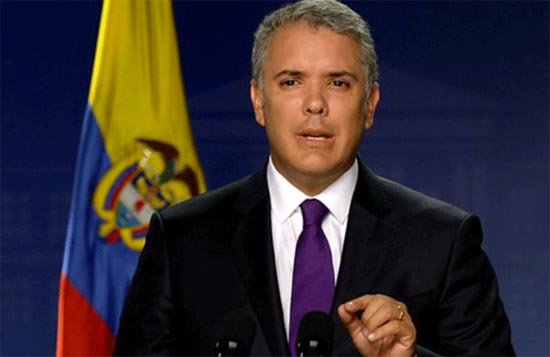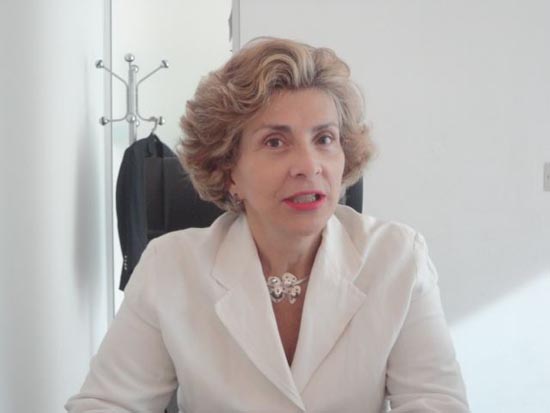
Colombian President objects to 6 out of 159 articles of Special Jurisdiction for Peace
The President of the Republic of Colombia, Mr Iván Duque Márquez has objected to six out of the 159 articles of the Special Jurisdiction for Peace (SJP) statutory bill.
Advertisement
In addition, Article 166 of the Constitution of Colombia empowers the President to raise these objections before signing the bill to be passed into law if it is found to impinge on the rights of the citizens of the country.
Each of the objections sought to improve and correct the transitional justice system agreed upon in the Final Agreement and the country has been advised not to fear an open debate on the proposed changes, in a constructive way and without any intention of polarising.
The concern is about the six articles objected that are still in the bill that would become
The Colombian Ambassador to Ghana, Madam Claudia Turbay Quintero who explained the President and government’s stand on the decision, said the articles were those which could create situations of impunity, allow abuses of the benefits provided for in the Final Agreement, hinder judicial cooperation with other states, as well as hinder future peace negotiations. They include those which could hinder the payment of reparations to victims, she added.
Madam Turbay Quintero

Colombian Ambassador to Ghana, Madam Claudia Turbay Quintero
Inconvenient provision
The ambassador said the Comprehensive Reparation to victims was an inconvenient provision because it did not establish clearly the main obligation of the perpetrators to fully compensate the victims.
She stressed the need for Colombians to be clear about the importance of specifying that perpetrators must advance a material reparation with their assets, in order to satisfy the victim’s rights.
Madam Turbay Quintero noted that under the Final Agreement, war crimes and crimes against humanity, were not susceptible
She said “the government considers it unacceptable that a person who may be guilty of a heinous crime of international significance could be exonerated of punishment, merely on the grounds that he or she could not be considered as
The ambassador mentioned Article 63, Paragraph 8, as inconvenient, as it did not determine the scope of the power attributed to the High Commissioner for Peace to verify the list of those who were recognised as members of an organised armed group which entered into a peace process.
She observed that another objection that sought to remedy a possible path towards a situation of impunity referred to the lack of continuity in investigations of heinous crimes.
It was
Final Agreement
The ambassador pointed out that the government of President Duque Márquez was committed to the implementation of the Final Agreement for the Termination of the Conflict, signed in December 2016 with the FARC, within the framework of a broader policy of territorial stabilisation and the consolidation of peaceful coexistence.
She emphasised that the objections raised to the statutory
Ultimately, she said what motivated the government was to prevent the consolidation of norms and procedures that affected the rights of victims to truth, justice, reparation and non-repetition, which was the axis of the SJP, of any transitional justice mechanism and of the Final Agreement itself.
The ambassador said it was not true that the SJP will be paralysed or stop working because of the objections, adding that it was also not true that objecting a limited number of articles of the bill, entailed a clash with the judiciary.
She
Rationale
Touching on the rationale of the objectives, the ambassador noted that if the President signed off the bill as was submitted for his consideration, he would be acting irresponsibly towards the country as a whole, the Colombian society and, in particular, the victims.
Specifically, she said the President had concluded that under that version of the bill, several possible scenarios of impunity would arise, which in turn, would entail the breach of international obligations of the Colombian state, derived from human rights treaties and, in particular, the Rome Statute of the International Criminal Court (ICC).
Madam Turbay Quintero noted that, by partially objecting to the bill, the President was exercising a power provided for, in the Constitution and was contributing to a process of normative construction in which all three branches had participated.
On the part of the Executive, when drafting the original text, the Congress, when approving it and introducing the adjustments it considered necessary and the Constitutional Court, when reviewing it to verify its compatibility with the Constitution and modulating some of its provisions.
In the case of statutory bills, the Constitution provided that the analysis of constitutionality must be done before the draft was sent to the President for signing it off.



